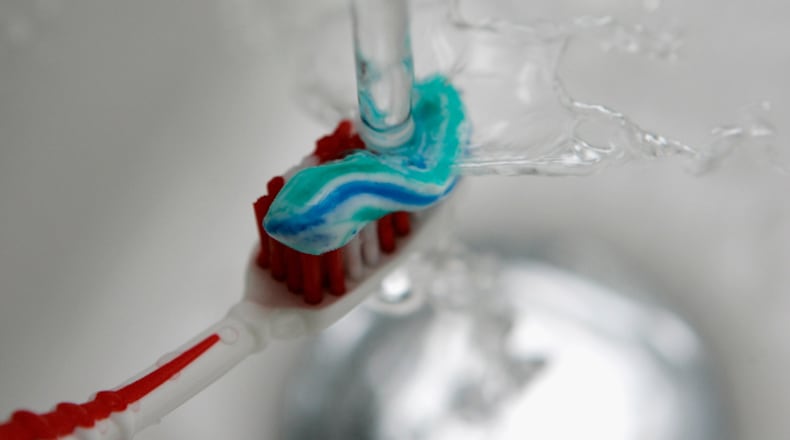There’s a solid chance your toothbrush is infested with fecal bacteria.
According to Miryam Wahram, author of “The Hand Book: Surviving in a Germ-Filled World,” a toothbrush can be more germ-riddled than a toilet seat.
And research conducted in 2015 by a team from Connecticut's Quinnipiac University shows that nearly 60 percent of toothbrushes in communal bathrooms tested positive for fecal matter.
What’s worse, the study found, is if you’re sharing a bathroom, there’s an 80 percent chance that the fecal bacteria on your toothbrush came is someone else’s feces.
In 2012, researchers at Manchester University in England found more than 10 million bacteria live on your toothbrush.
But that doesn't mean you should stop brushing. In fact, according to USA Today, most germs won't hurt you as long as you're regularly using toothpaste.
Here’s how fecal bacteria gets onto your toothbrush, according to Medical News Today:
- Germs exposed by flushing toilet
- Bacteria harbored inside new box of toothbrushes not sold in sterile packaging
- Bacteria harbored from covering toothbrush after use
And how to prevent fecal bacteria on your toothbrush:
- Close the lid of your toilet before you flush
- Rinse your toothbrush with tap water after use and air dry
- Don't cover or store in closed containers
- Rinse toothbrushes in antibacterial mouthwash or toothbrush sanitizer
- Do not share toothbrushes
- Buy a new one every three to four months
About the Author
Keep Reading
The Latest
Featured



